We recently connected with Cole Wills and have shared our conversation below.
Cole, looking forward to hearing all of your stories today. Are you able to earn a full-time living from your creative work? If so, can you walk us through your journey and how you made it happen?
[Have you been able to earn a full-time living from your creative work?] Earning a full-time living from your creative work is the most challenging obstacle you will face as a creative artist, and this is especially true for Musicians. Growing up, I was told to be a “Professional Musician,” you had to be making a living wage on music alone, so that is the definition I have always worked toward, but I haven’t made a very comfortable living solely off music alone for an extended time.
[Can you walk us through your journey and how you made it happen? Was it like that from day one?]
As a fifteen-year-old kid, I was striving to learn a lot of covers and to be able to work as a hired-gun bass player with cover bands. I made some money doing this, but never enough to make any sort of living. Maybe $40 or $60 three or four times a month. I played with handfuls of cover bands sparingly and inevitably gravitated towards original music. When I was sixteen I began writing and performing with three guys who all had been playing in a cover band together for over ten years. We were playing shows and making a little bit of money doing it here and there, which for an original band then was a significant milestone, but still wasn’t a significant amount; maybe $120 to $200 a show, split four ways, maybe two or three times a month. I played in that group for somewhere around six or seven years until I was in my early twenties, when I started becoming more of what I would call a “Semi-Professional Musician,” playing in a progressive bluegrass band for several years before inevitably starting my own band, Rhythm Addicts.
My distinction between a Semi-Professional and a Professional Musician is pretty significant, and yet each has a contextually unique definition for each artist. For me, a professional musician today is an individual who makes a full-time living; let’s say twenty to forty thousand dollars annually, or more, solely through performing, recording, producing, teaching, or other music-related endeavors. A Semi-Professional musician to me is someone who makes less than twenty thousand annually through performing, recording, producing, teaching, or other music-related endeavors. An Amateur Musician would be someone who makes less than five thousand dollars annually through musical endeavors. All three levels can have supplemental income from other sources outside of their musical career contributing to their total annual income, but how much you make in the industry, for me, is ultimately the deciding factor on whether or not you can call yourself a professional musician.
I feel that a lot of people like to base their definition of a professional off of talent, time spent on the craft, personality and conduct, or dedication to the lifestyle, and though factors such as these are certainly important, they don’t dictate financial success in the industry. For example; a musician with very limited talent may be immensely successful financially, whereas a very talented musician, for whatever circumstance, may be completely unsuccessful within the industry. Maybe an artist who is very kind, considerate, and put together struggles financially in the scene, whereas an artist who is difficult, inconsiderate, and mindless can function efficiently and succeed financially.
[What were some of your major steps and milestones?]
Success as a musician is in itself contextual for each individual within the industry, and I can’t stress this enough. I think one of the most important things an artist or musician can do is sit down and identify what success looks like for them, and what they are concerned with getting out of the investment in their work and productions because this is something that varies greatly from artist to artist. In terms of financial sucess with music, I’ve generated the most income through not just performing, but through organizing our own music events, and productions. I’ve
grossed as much as $7,400 in a single weekend producing micro-festivals at my families farm, whereas the most my band has generated in a one-show weekend has been $1800 to date. I consider generating these gross figures themself a successful milestone, but for me I am driven by more abstract forms of success, such as developing and participating in a noncommercial, creativity driven community, going on musically driven adventures, creating art that will last longer than our lifetimes, meeting and performing with incredibly talented creatives, and contributing to making the world a better place through art and music.
[Do you think you could have sped up the process somehow knowing what you now know?]
I feel like I was always made to feel guilty for having work outside of music, like that if I wasn’t devoting all of my time to the music and earning solely through that avenue then I wasn’t a professional and that I was unsuccessful as a musician. I would struggle trying to make ends meet with the money I was earning solely through music and was living the “starving artist” lifestyle that so many of us do, because I was made to feel as though thats what you had to do to be a “professional musician”. Touring across the country and getting to perform in Nashville was a game changer because it helped me to clarify and refine my definitions of what it means to be a professional. In Nashville, if you’re a professional musician, you play covers starting at 10am and you may play four or five gigs a day, five days a week, to earn a full-time income as a professional musician. Whereas if you are a musician in parts of the country that are “blue collar” regions, it is more understood that you are going to have a day job and do music as an evening or weekend side hustle, and that making a fulltime living there solely off performing music is typically unrealistic due to that economic environment of that region, unless you draw income from many different musical sources, or have some sort of commercial music deal. If I had understood that sooner I think it would have really helped me get ahead quicker and focus on what really mattered to move my career in the direction that I wanted.
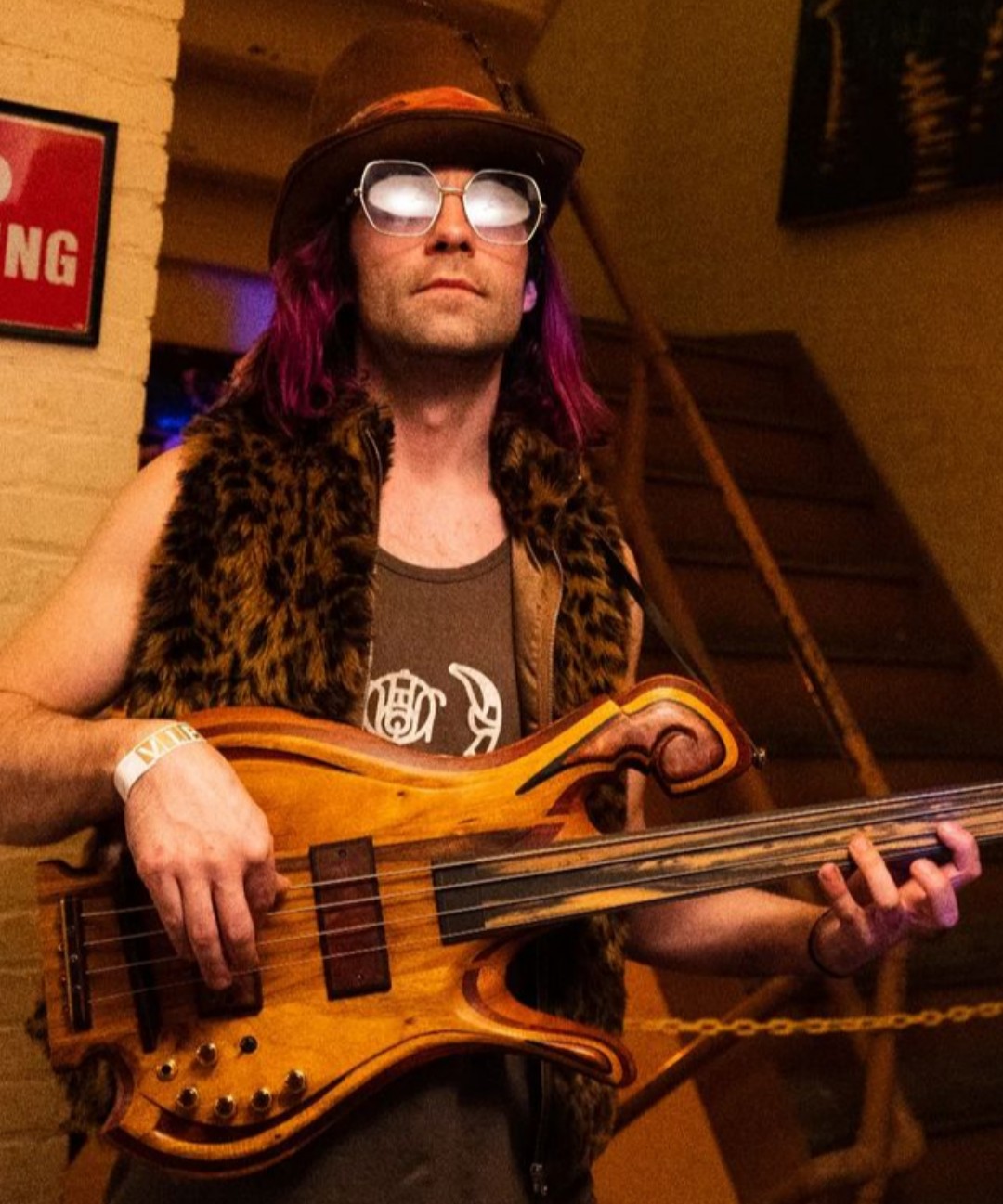
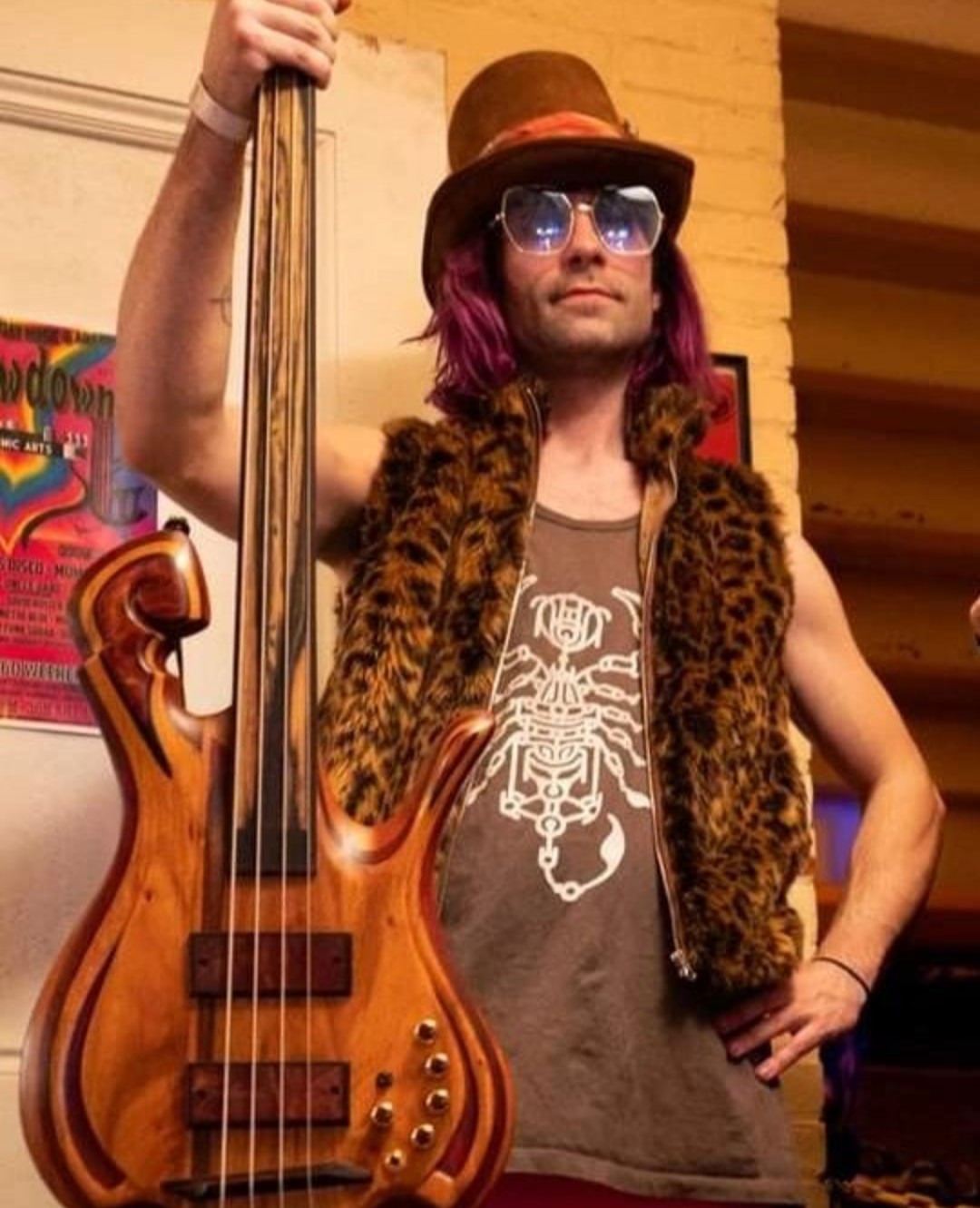
Great, appreciate you sharing that with us. Before we ask you to share more of your insights, can you take a moment to introduce yourself and how you got to where you are today to our readers
I’m an Electric Bassist that fronts my own band, Rhythm Addicts. Our music is legally categorized as Gangsta Funk or G Funk, which fuses Funk, Jam, and Hip Hop. My playing style utilizes percussive slap bass lines, melodic fretless bass lines, as well as organic, sinister dubstep bass lines that I produce using my bass and a motion sensor ring I wear when I perform that all really help me stand out amongst any other act in the industry. My electric bass, made by Carl Thompson, is itself is a work of art and was recently appraised at 30k dollars. It is made of Black Walnut, Paduak, West African Mahogany, Macassar Ebony, Snakewood, Cocobolo, Honduran Mahogany, and Pau Ferro and is essentially an extension of myself at this point. I own an equestrian farm, The Wills Estate Farm and throw my own music festivals, Funk on the Farm and Hoedown on the Lowdown being the most prominent. I also am a skilled arborist and professional tree climber. I record at Castle Bam Studios in West Chester, Pa and just did our first Nationwide tour from Philadelphia to San Diego and back to play Karnival of the Arts San Diego and everywhere in between.
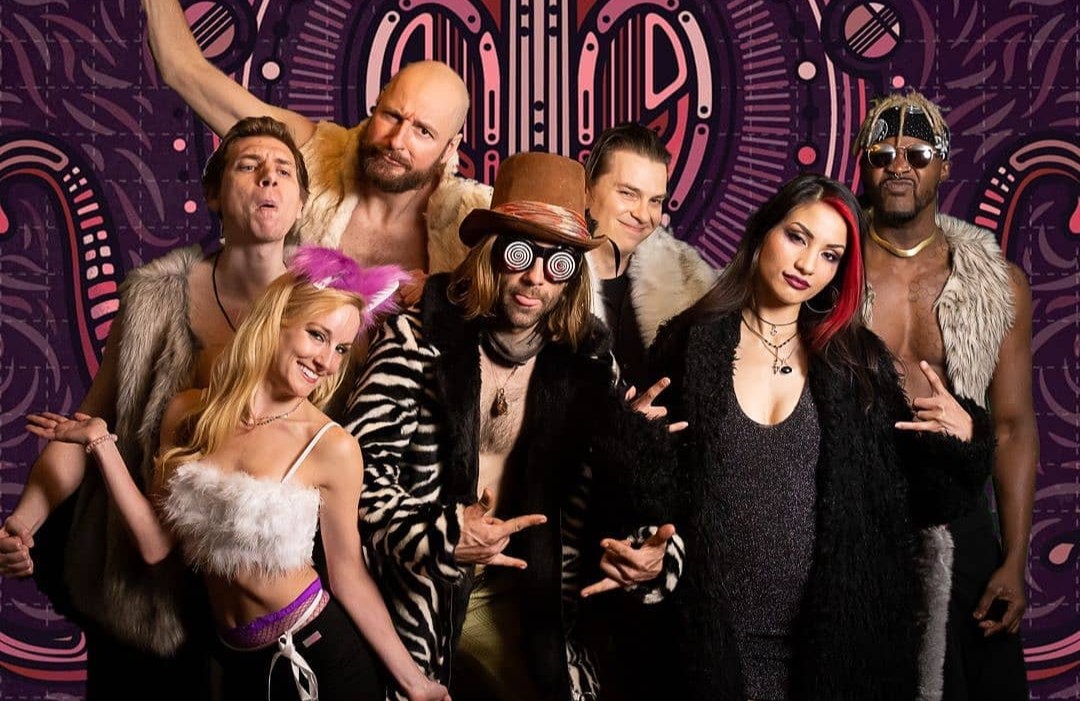
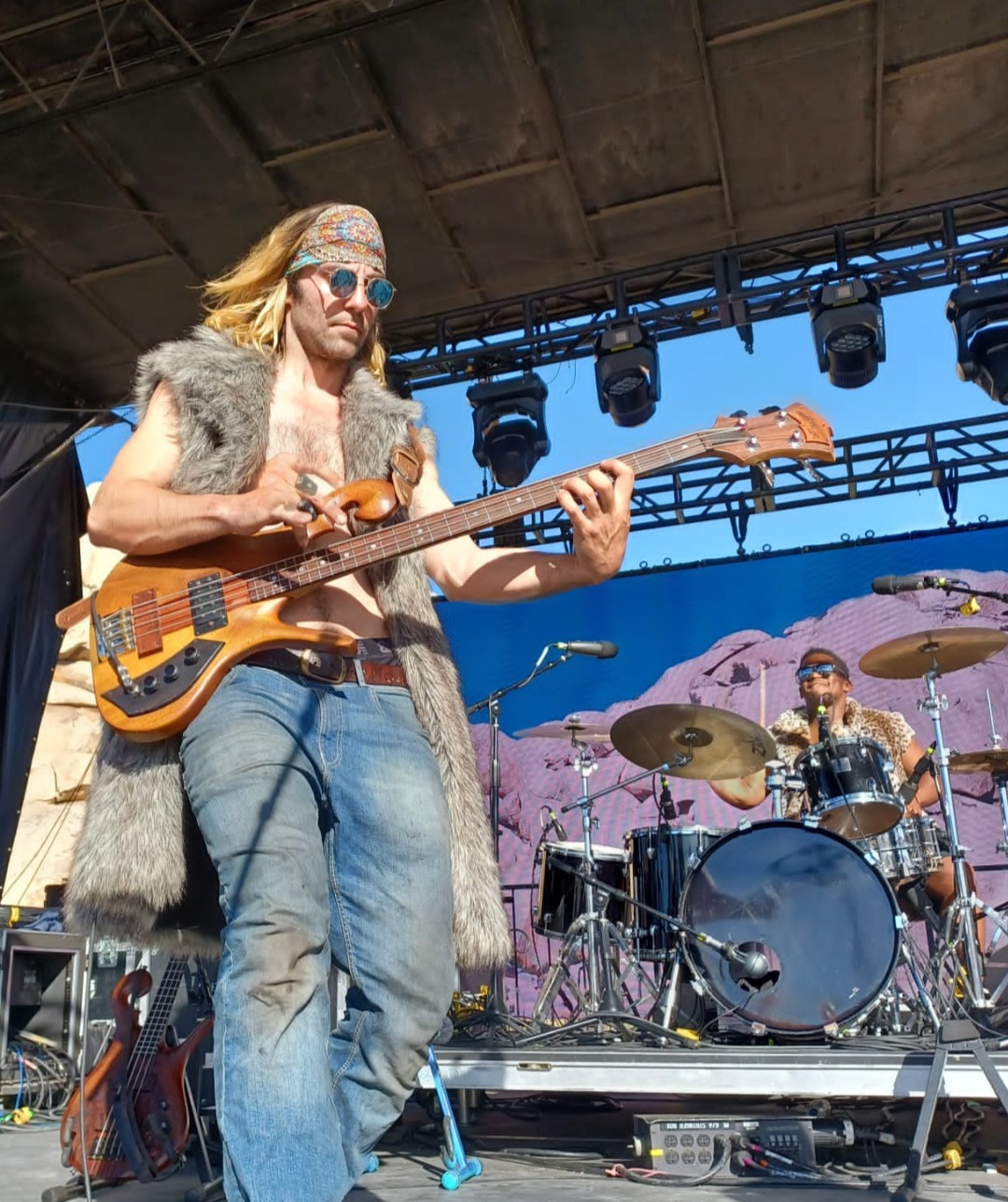
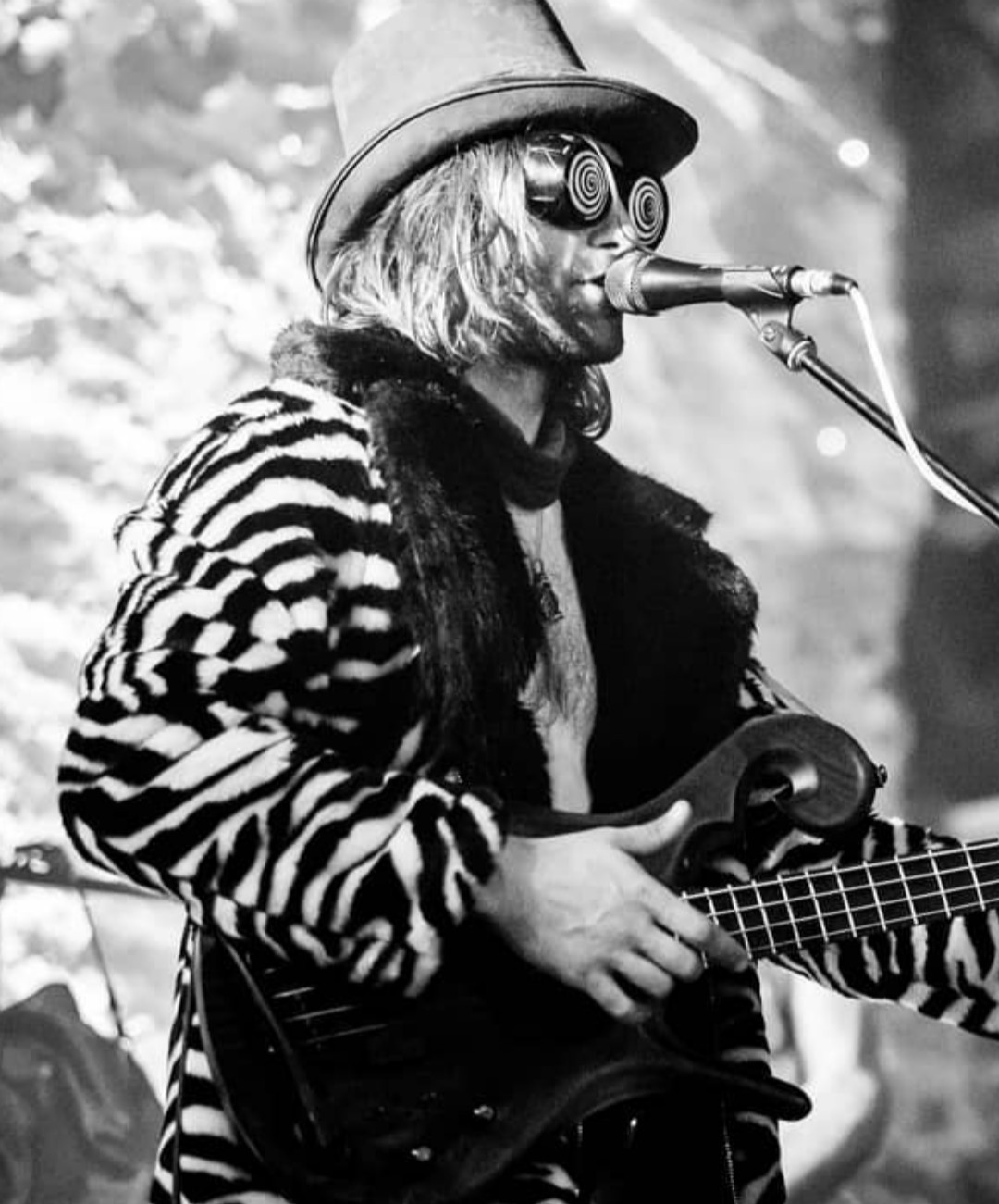
We’d love to hear a story of resilience from your journey.
My life has been a constant series of obstacles and challenges to overcome, but in terms of residence and our experience on the road from Philadelphia to and from San Diego; it was certainly not a smooth road that required a lot of resilience. In Texas, our gear trailer tire overheated, threw its tread, and slapped the wheel well right off the trailer… Our bus overheated climbing mountains near El Paso… After taking a detour in Texas around a border patrol inspection station just before New Mexico, we ran out of gas in the desert… In Tucson, our bus tire sheered its tire studs and lug nuts, auto zone gave us the wrong parts and I spent the night the bus in the auto zone parking lot… The next day after we made our repairs, an hour down the road, our ignition module and distributor fried and the bus was inoperable… We left it in Tucson and picked it up on the way back, the mechanic Quinton at QDC was a saint and didn’t charge us for the work. The trailer blew its second tire… After over 40 hours of driving, less than 20 minutes from my farm, the bus blew its back right tire… Definitely not what I would call a smooth road that required a lot of resilience and patience.
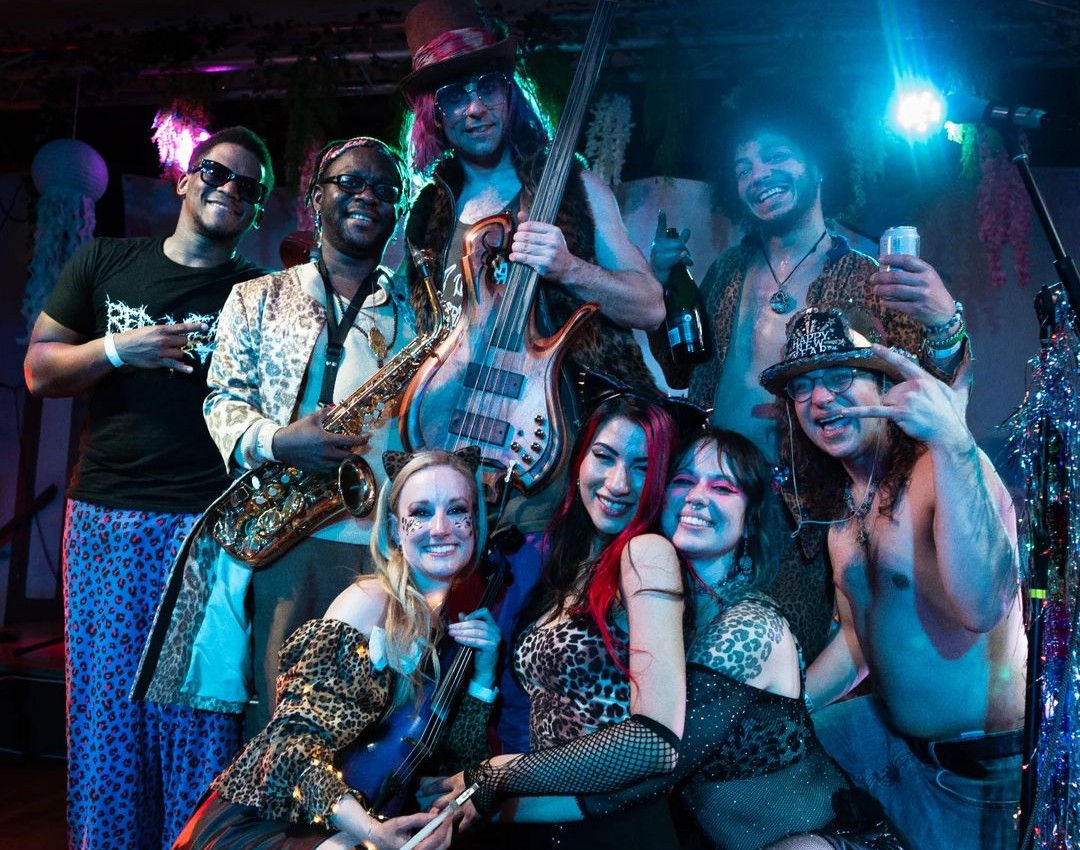
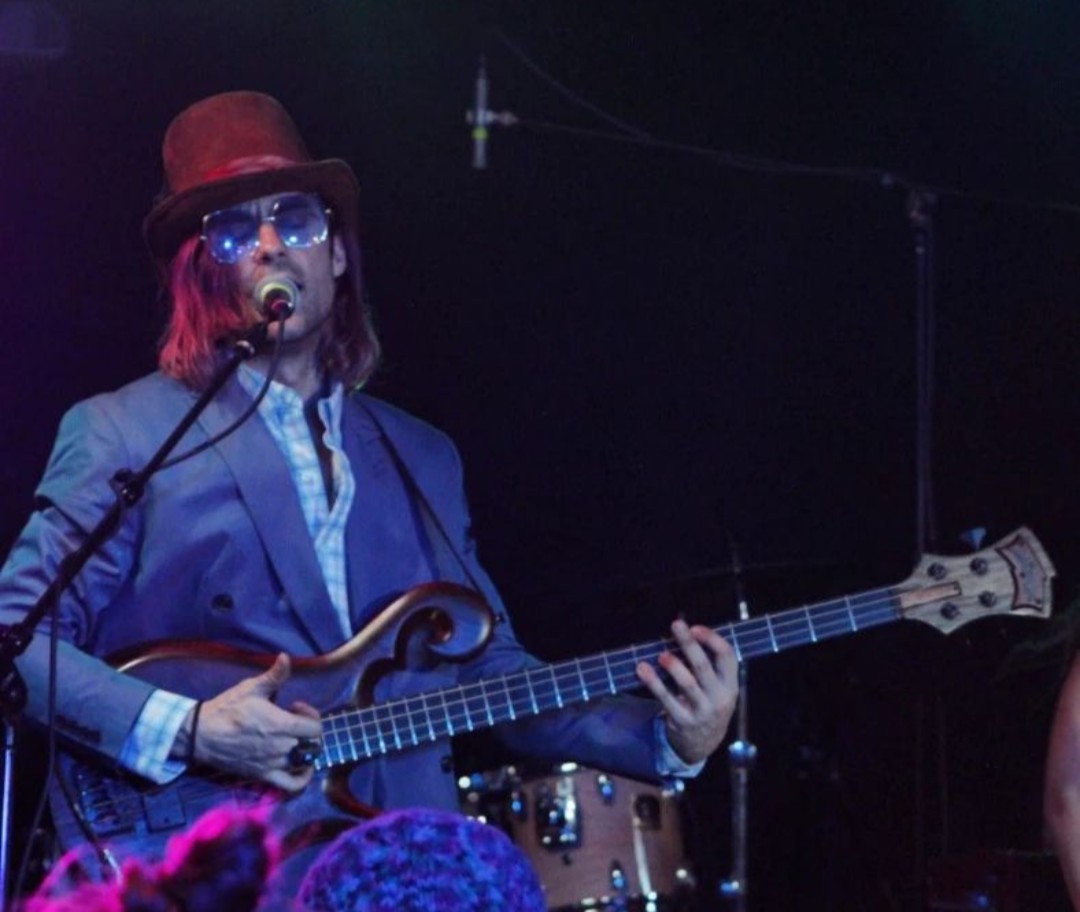
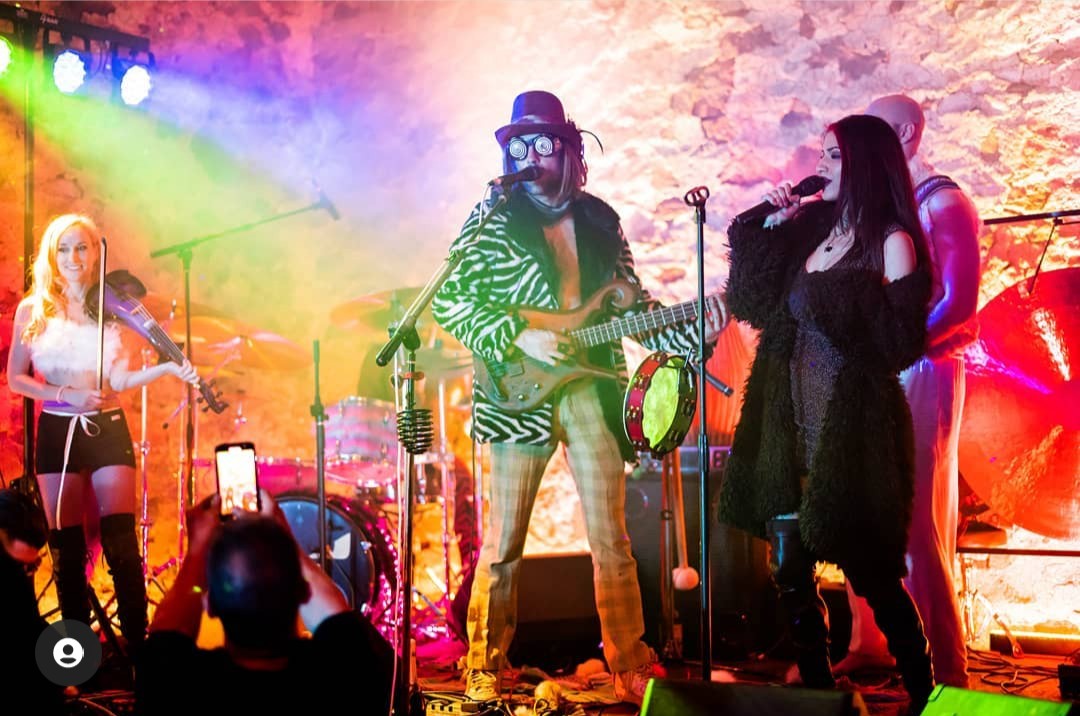
In your view, what can society to do to best support artists, creatives and a thriving creative ecosystem?
The best thing you can do is stop giving your money to commercial interests and start investing in your local artists and business owners in order to develop a strong foundation for a member driven and member supported community.
Contact Info:
- Website: https://open.spotify.com/artist/1IVGRVSkC61A8SwC2EYgjm?si=1Zy4YRvBRo6NTOkYIWKwDg&utm_source=copy-link
- Instagram: https://instagram.com/whatevercolewills?igshid=YmMyMTA2M2Y=
- Facebook: https://m.facebook.com/rhythmaddictsband/?_rdr
- Youtube: https://www.youtube.com/@rhythmaddicts
- Other: https://linktr.ee/RhythmAddictRecords?fbclid=PAAaaKji7j9vay7cYTq8Db8-4XQwYwEjBzAQQ4zGQiQ14_CJMi4vC0UcbVgeY
Image Credits
Photos by Corey Rice ( @framelair)


